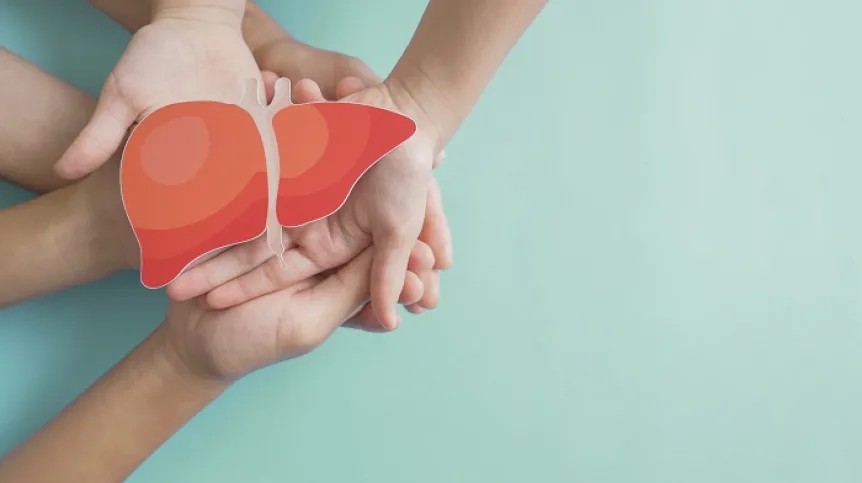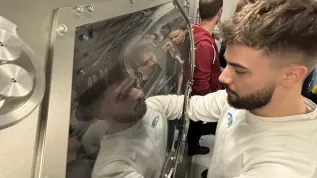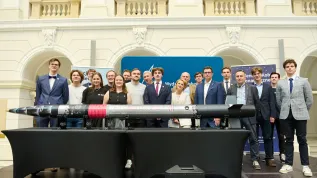
Students from Warsaw universities are working on a therapy for patients with liver cancer. They want to design an mRNA molecule that will induce the production of a protein that kills hepatocellular carcinoma cells. They will present the HepaSwitch technology in October at the international iGEM competition.
Students from four Warsaw universities - the Warsaw University of Technology (consortium leader), the University of Warsaw, the Warsaw University of Life Sciences and the Warsaw Medical University - are working on a targeted therapy for patients with liver cancer. The main scientific supervisor of the team is Anna Sobiepanek, PhD, from the Faculty of Chemistry of the Warsaw University of Technology.
They will present the solution during the international iGEM (International Genetically Engineered Machine) competition in October 2025 in Paris. As part of the solution, student teams design and build biological systems using the so-called BioBricks, i.e. replaceable genetic parts. This is how solutions to real problems are created, such as removing contaminants or developing new therapies.
The solution that the Warsaw team is working on will be a targeted therapy, tailored to the patient based on biopsy results.
The project involves creating an mRNA molecule that will contain instructions for building a specific protein. In this case, it will be a protein leading to the death of hepatocellular carcinoma cells, which will cause the immune system to destroy the tumour.
'We want to induce pyroptosis - a specific type of cell death that not only eliminates hepatocellular carcinoma cells, but also stimulates the secretion of pro-inflammatory cytokines and induces inflammation within the tumour. As a result, there is an influx of lymphocytes and other cells of the immune system, which significantly increases the effectiveness of antigen presentation and anti-tumour response', says Bartosz Bunar, the project team leader.
Thanks to the use of a riboswitch (i.e. a specially designed mRNA molecule), it will be possible to increase the selectivity of the potential therapy. Students will develop software that will analyse data from tumour biopsies and healthy patient cells. The software will be able to develop a sequence of personalized riboswitches dependent on cancer mutations for specific patients.
Students hope that the results of their experiments will indicate a new promising direction of research into anticancer therapies, and in the longer term may contribute to the treatment of cancer patients.
As part of the competition application, students also plan to present synthetic and molecular biology to high school students. They will also conduct a hepatocellular carcinoma prevention campaign. 'We will inform about vaccinations against hepatitis B virus (HBV), the possibility of testing for HBV, HCV, the importance of limiting alcohol consumption, because these are the main factors that determine the development of this cancer', Bartosz Bunar says.
The initiative is supported by the Polish Ministry of Science and Higher Education. The students are also looking for additional support from sponsors and partners, which would allow the entire team to participate in the Paris competition and enable faster and more professional development of their technology. (PAP)
PAP - Science in Poland, Ewelina Krajczyńska-Wujec
ekr/ bar/













